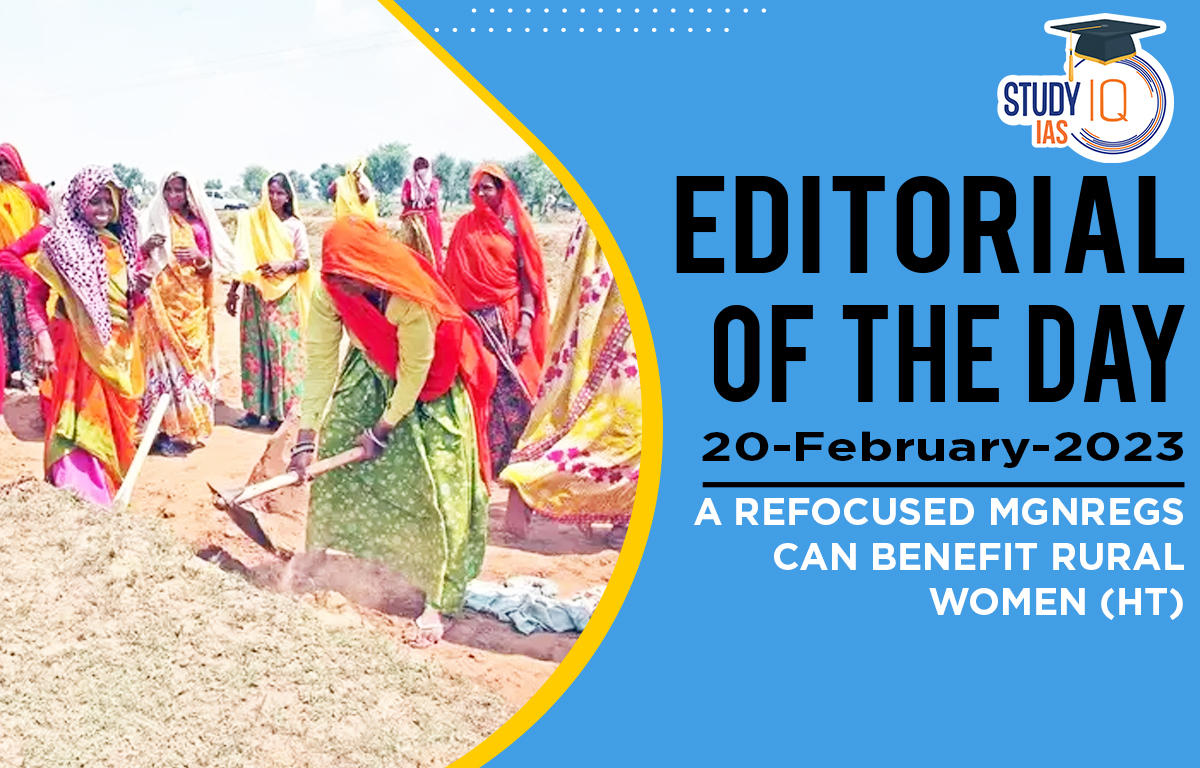Table of Contents
The reduced allocation of funds in the Budget 2023-24 for the Mahatma Gandhi National Rural Employment Guarantee Scheme (MGNREGS) has disappointed many stakeholders.
- MGNREGS is one of the world’s largest welfare schemes, and had helped millions sustain their lives during Covid pandemic.
- Now is the time to make efforts to ensure that those left on the margins, especially women, are encouraged to make the best use of the scheme.
MGNREGS Study in Rural Areas
- Dalberg Advisors conducted a study across 4,600 low-income households in rural areas and 1,500 MGNREGS administrators across five states of Andhra Pradesh, Jharkhand, Karnataka, Rajasthan, and Uttar Pradesh.
- Increase in employment: The study found that there was an increase in employment under the scheme in 2022 over the preceding five years.
- Issues faced by women employment seekers: Even though MGNREGS is attracting more women employment seekers, many of them face challenges in accessing the same under the scheme.
- About 26% of women who wanted work under MGNREGS did not apply due to a lack of understanding of the application process;
- 6% of women with a job card could not apply for employment as there was no work being available.
- Other Challenges: Job cards making, delayed wage payments, grievance redressal process, work demand surveys and availability of work are some other challenges.
Importance of MGNREGS for Women Empowerment
- Higher participation: Female labour force participation in MGNREGS is much higher than the scheme’s initial target of providing 33% of employment to women.
- Data shows that women account for a total of 50% of the active job cards and more than half of the annual days of employment provided in each of the last five years.
- Majority of these women were previously unemployed or working as unpaid labour.
Way forward
- Awareness creation: Government must partner with NGOs to improve beneficiary awareness of MGNREGS processes through targeted civil society-led drives.
- Increase work categories: There must be efforts to increase the types of work available or introduce exclusive categories of work available for women to help them gain employment under the scheme.
- Remove prejudices: Exclusive women work categories must be included in the annual work plan for gram panchayats. This could help overcome prejudices against women’s employment.
Conclusion
- MGNREGS has the potential to shift the power dynamics of gender, an outcome that could prove to be a game-changer in rural areas. This could reduce rural poverty and bring more women into the workforce.
- The reduction of funds for MGNREGS scheme should not lead to a situation where women are overlooked, or their concerns not addressed.
- Efforts have to be made to improve the design and execution of MGNREGS to ensure that it is more inclusive for the rural women workforce.





















 WhatsApp
WhatsApp